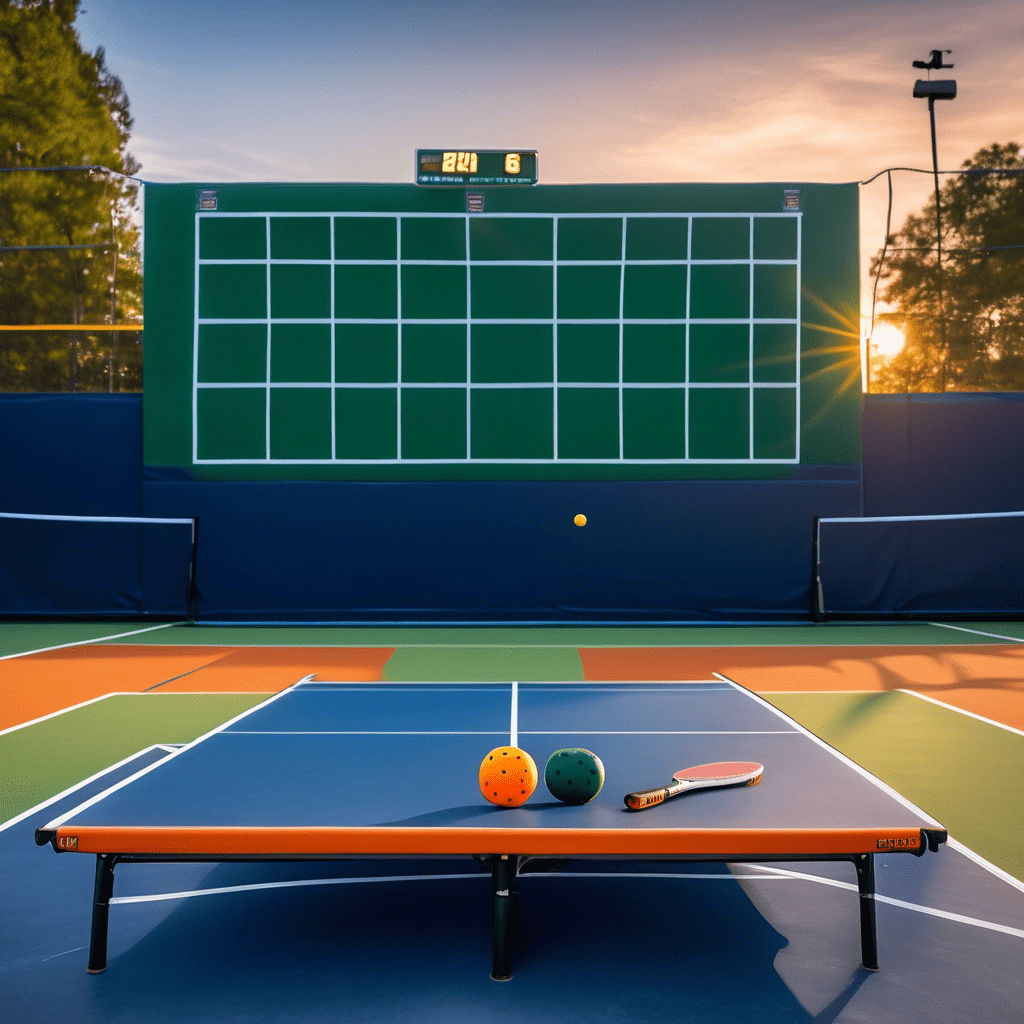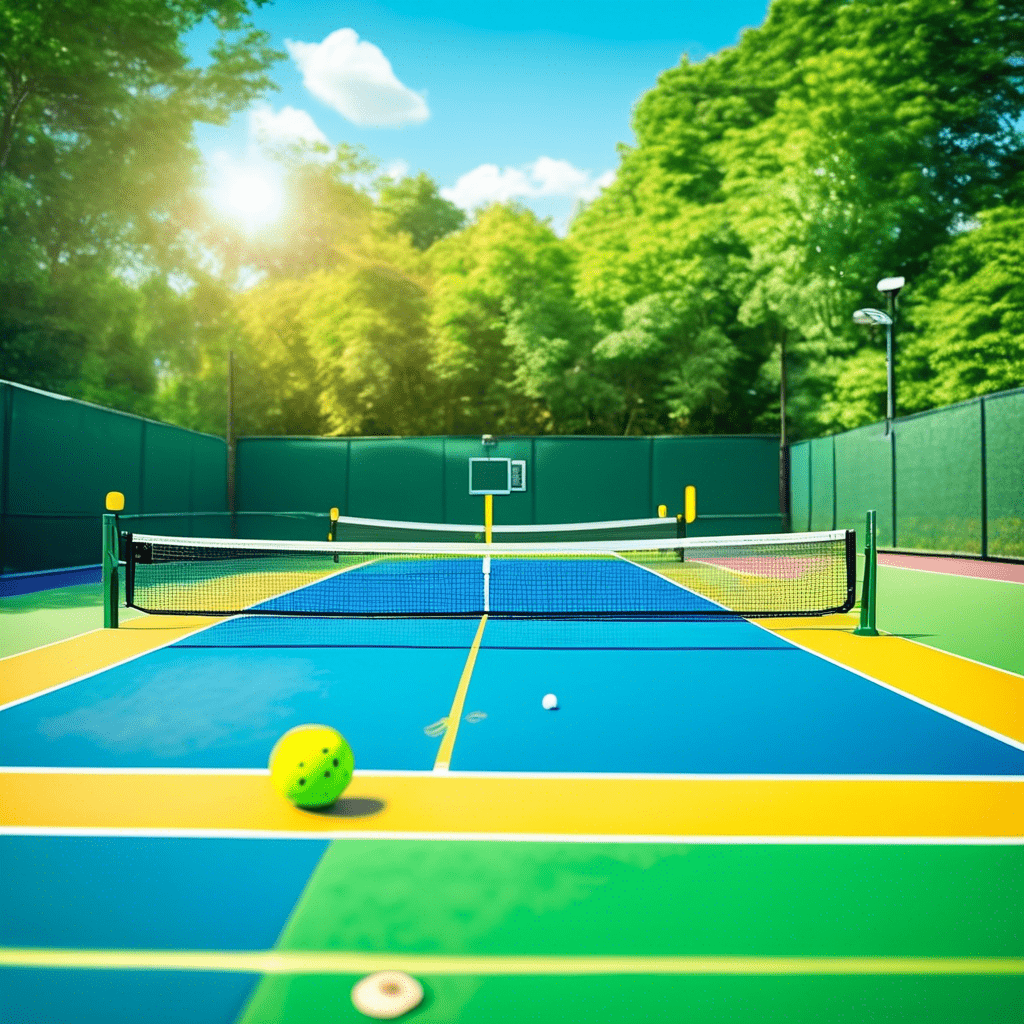Understanding Pickle Ball Ratings: Your Guide to Player Skill Levels
If you’re diving into the exciting world of pickleball, you’ve probably heard whispers about player ratings. But what exactly are pickle ball ratings, and why do they matter? Whether you’re a seasoned pro or just starting out, understanding the rating system can help you gauge your skill level, find appropriate opponents, and set goals for improvement. In this comprehensive guide, we’ll break down everything you need to know about pickle ball ratings, from their purpose to how they’re determined.
What Are Pickle Ball Ratings?
Pickle ball ratings are a numerical system used to classify players based on their skill level and playing ability. Think of it as a report card for your pickleball prowess. These ratings typically range from 1.0 to 5.0+, with each whole number representing a significant jump in skill level. The system helps players find matches with others of similar abilities, ensuring competitive and enjoyable games for everyone involved.
The rating system isn’t just about bragging rights; it’s a crucial tool for tournament organizers, club managers, and players themselves. It helps create balanced competitions, allows beginners to avoid being overwhelmed by more experienced players, and gives advanced players the challenge they crave.
The Purpose of Pickle Ball Ratings
You might be wondering why we need a rating system in the first place. Well, imagine showing up to a pickle ball court near you and finding yourself paired with a national champion when you’ve just learned how to hold a paddle. Not exactly a recipe for fun, right? Ratings serve several important purposes:
- Fair Matchmaking: Ratings ensure that players are matched with opponents of similar skill levels, leading to more competitive and enjoyable games.
- Tournament Organization: They help tournament directors create balanced brackets and divisions.
- Skill Assessment: Ratings provide players with a clear indicator of their current skill level and areas for improvement.
- Goal Setting: Having a tangible rating gives players something to aim for as they work to improve their game.
Understanding your rating can also help you choose the right best pickle ball paddles for your skill level, as different paddles cater to various playing styles and abilities.
How Pickle Ball Ratings Work
The rating system in pickleball is designed to be intuitive and easy to understand. Here’s a breakdown of the general skill levels:
- 1.0-2.0: Beginners who are just learning the basic rules and strokes.
- 2.5: Players who understand basic strategy and can sustain short rallies.
- 3.0: Consistent players with a good grasp of the game and improved shot control.
- 3.5: Players with developed shot variety and strategic play.
- 4.0: Advanced players with solid all-around skills and tactical know-how.
- 4.5: Highly skilled players with excellent shot control and strategic expertise.
- 5.0+: Elite players with exceptional skills, often competing at national levels.
It’s important to note that these ratings aren’t set in stone. As you improve your skills, learn new pickle ball terms, and gain experience, your rating can increase. Conversely, if you take a long break or don’t maintain your skills, your rating might decrease.

Determining Your Pickle Ball Rating
Now that you understand what ratings mean, you’re probably eager to find out where you stand. There are several ways to determine your pickle ball rating:
Self-Assessment
While not official, self-assessment can give you a rough idea of your skill level. Review the descriptions for each rating level and honestly evaluate your abilities. Are you just learning how to play pickle ball, or can you hold your own in competitive matches?
Club Ratings
Many pickleball clubs have their own rating systems. They might host rating clinics or have experienced players evaluate newcomers. This can be a great way to get an initial rating if you’re just starting out.
Tournament Play
Participating in rated tournaments is one of the most accurate ways to determine your skill level. Your performance against players with established ratings will help pinpoint where you stand.
Official Ratings
Organizations like USA Pickleball offer official rating processes. These typically involve playing a series of games under observation by certified raters who assess various aspects of your play.
Factors Influencing Your Rating
Your pickle ball rating isn’t just about how hard you can hit the ball or how fast you move. Raters and experienced players look at a variety of factors when assessing skill levels:
- Shot Consistency: Can you reliably make basic shots and serves?
- Shot Variety: Do you have a range of shots in your arsenal, from dinks to lobs?
- Positioning: How well do you move around the court and position yourself for shots?
- Strategy: Do you understand and implement basic or advanced strategies?
- Teamwork: In doubles, how well do you communicate and cooperate with your partner?
- Mental Game: Can you stay focused under pressure and make smart decisions?
Remember, improving these aspects of your game can help boost your rating over time. It’s not just about physical skills; understanding pickle ball rules and strategy plays a huge role in your overall rating.
The Journey of Improvement: Climbing the Rating Ladder
Improving your pickle ball rating is a journey that requires dedication, practice, and strategic learning. Here are some tips to help you climb the rating ladder:
Consistent Practice
The old saying “practice makes perfect” holds true in pickleball. Regular play helps you refine your skills and build muscle memory for crucial shots. Try to play at least a few times a week if you’re serious about improving.
Learn from Better Players
Don’t shy away from playing with those who are more skilled than you. While it might be challenging at first, it’s an excellent way to learn new techniques and strategies. Many higher-rated players are happy to share tips and advice.
Focus on Weaknesses
Identify areas of your game that need improvement and dedicate time to working on them. If your backhand is weak, for example, spend extra time practicing backhand drills.
Study the Game
Watch professional matches, read pickleball strategy books, and study the pickle ball history to deepen your understanding of the game. Knowledge is power, especially in a strategic sport like pickleball.
Invest in Proper Equipment
While skill is paramount, having the right equipment can make a difference. Invest in a quality pickle ball paddle set that suits your playing style and skill level.

The Impact of Ratings on Your Pickleball Experience
Understanding your pickle ball rating can significantly enhance your overall experience with the sport. Here’s how:
Finding the Right Competitions
Knowing your rating helps you enter tournaments and leagues that match your skill level. This ensures you’ll face appropriate challenges and have a fair shot at success.
Setting Realistic Goals
Your current rating provides a baseline from which to set improvement goals. Aiming to move up half a point or a full point can give your practice sessions more focus and purpose.
Tracking Progress
As you play more and improve, seeing your rating increase is a tangible way to track your progress. It’s incredibly satisfying to see your hard work reflected in a higher number.
Building Confidence
Understanding where you stand in terms of skill can boost your confidence on the court. It helps you recognize your strengths and approach matches with a positive mindset.
Connecting with the Community
Ratings provide a common language for players to connect and organize games. Whether you’re looking for pickle ball near me or joining a new club, your rating helps you quickly find suitable playing partners.
Conclusion: Embracing Your Pickle Ball Journey
Pickle ball ratings are more than just numbers; they’re a roadmap for your pickleball journey. Whether you’re a 2.0 beginner or aspiring to reach 5.0 elite status, understanding and embracing the rating system can enhance your enjoyment of the game and provide clear goals for improvement.
Remember, the joy of pickleball isn’t just in the numbers. It’s in the friendships formed, the physical benefits gained, and the thrill of competition. Your rating is a tool to help you get the most out of the sport, but it doesn’t define your worth as a player or the fun you can have on the court.
So, grab your paddle, step onto the court, and enjoy the journey of improvement. Whether you’re playing casual games at your local park or competing in tournaments, let your rating guide you to new challenges and opportunities in the wonderful world of pickleball. Who knows? With dedication and practice, you might just find yourself climbing the rating ladder faster than you ever imagined!